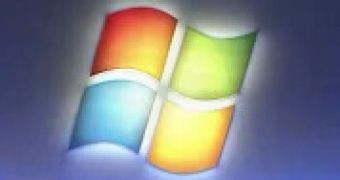Next generation form factors running Windows 8 are bound to sport a range of evolved features, functionality and capabilities compared to Windows 7 machines today. Microsoft Chief Executive Officer Steve Ballmer while talking at the Rotary Club of Seattle at the end of June 2011 hinted of a new level of human computer interaction in the near future.
And Microsoft’s CEO wasn’t talking exclusively about Windows machines, but also about additional technologies from the Redmond giant.
“We're betting on the future of these devices that understand you and recognize you, the next generation of Windows PCs, and Windows slates, the next generation of phones, Windows Phones, the next generation of technology in your living room with Xbox and Kinect,” he stated.
Sure, Ballmer doesn’t mention Windows 8, but the fact of the matter is that he can talk about Windows 7 devices, even forthcoming ones, since it’s obvious that Windows Vista’s successor has been stretched as much as possible.
As far as user recognition functionality goes, I’ve already told Softpedia readers that Windows 8 will feature human presence detection capabilities.
Whether or not the human presence detection will also involve Kinect for Windows remains to be seen, but I have a feeling that there’s more to Windows 8’s natural user interface (NUI) capabilities than just multitouch.
Having computers recognize users is of course the easy part of Ballmer’s prediction for next generation form factors, but getting the machines to actually understand what people want is a different thing altogether.
Perhaps Windows 8 and Kinect will deliver the added benefits of voice powered search just as it is the case for Xbox 360 today, but I wouldn’t expect Windows PCs / slates to start understanding users anytime soon.
“The first computers came out in the late '40s, and yet we're sitting here looking at opportunities to do interesting, and new, and creative things that are unabated, essentially, for 70 years. It is incredibly remarkable,” Ballmer added.
In this context, he talked about the evolution of computing, and about investments made by the Redmond company.
“At Microsoft we believe in that opportunity. We've investing in those opportunities. We're building the products that we hope are the difference makers. We've been very fortunate. We've made bets. We've built products. We've made the difference. There's a reason why we'll do almost $70 billion in revenue this year, and we'll make over 20-whatever $26-27 billion in profits. There are reasons -- we made the right bets, and we're making the bets for the future,” Ballmer noted.

 14 DAY TRIAL //
14 DAY TRIAL //